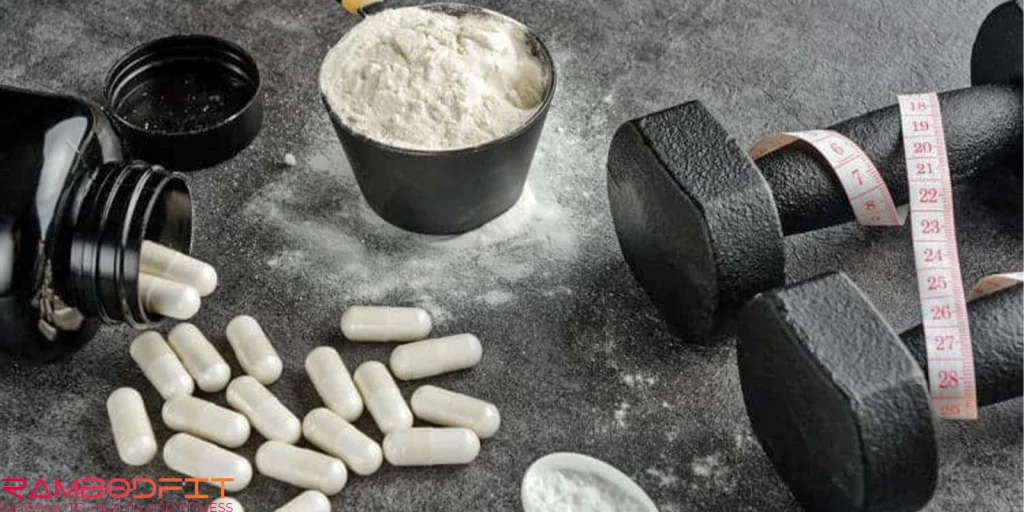


Man, creatine’s got a reputation—it’s basically the Lebron James of supplements. Used to be this secret sauce for bodybuilders and hardcore athletes, but now? Your grandma’s neighbor is probably chugging it in her morning smoothie. Seriously, it’s everywhere. And for good reason: study after study after study (like, enough to fill a small library) keeps showing that creatine helps you get stronger, lift heavier, and bounce back faster. Science has its back.
But here’s the thing: the rumor mill just won’t quit. People keep whispering (or, let’s be real, shouting on Reddit) about creatine wrecking your kidneys. “Does creatine give you kidney problems?” It’s like the supplement world’s version of Bigfoot—no matter how often it gets debunked, folks can’t let it go. That’s why the topic of creatine and kidney diseases keeps resurfacing in online circles and gym locker rooms.
And yeah, kidney health isn’t something to shrug off. Your kidneys are basically your body’s Brita filter, keeping the nasty stuff out of your bloodstream and making sure you don’t turn into a human salt lick. Anything that messes with them? Not good. So, the concern isn’t totally wild… but a lot of it? Straight-up misinformation, or just people getting spooked by stuff they half-heard at the gym. Much of the fear around creatine and kidney diseases is based on outdated or misunderstood information.
So let’s break it down, myth-busting style. We’re talking: what actually happens to creatine in your body, why those classic blood tests might not tell the whole story (spoiler: they can be confusing as heck), what doctors should really be looking at, and some straight talk from both the lab and the locker room. Understanding the facts about creatine and kidney diseases can help clear up the confusion and stop the fearmongering.
By the end of this, you’ll know why creatine’s not the villain it’s made out to be—and how to read those kidney numbers without freaking out. Basically, you’ll be able to flex your muscles and your brain. Here’s Rambodfit, so let’s get into it.
Table of Contents

Alright, let’s break it down in plain English. People get way too worked up over creatine wrecking your kidneys, but honestly, that’s mostly just hype. First off, creatine’s not some weird chemical cooked up in a lab—your body actually makes the stuff itself.
Most of it hangs out in your muscles (like, pretty much all of it), waiting to swoop in and recharge your energy whenever you do something intense—think deadlifts, sprints, or that one time you tried to race your dog up the stairs and regretted it immediately. Some concerns still circle around creatine and kidney diseases, but they’re usually based on old or misunderstood science.
Yeah, you can get some creatine from food—steak, fish, you know, the tasty stuff—but it’s not really enough to max out what your muscles can hold. That’s why gym rats and athletes go for the supplements: scoop of powder, mix it in water, boom—up to 20% more creatine packed into your muscles.
Not just for bigger biceps, either; there’s some talk that it helps your brain too. Go figure. That brain benefit rarely gets brought up in the same breath as creatine and kidney diseases, even though the latter tends to dominate the conversation.
Now, as your muscles use up creatine, it turns into creatinine (not a typo, that’s a real thing), which your blood carries over to your kidneys, and then out it goes when you pee. This happens to literally everyone, every day, supplement or not. So, unless you’re chugging insane amounts or your
kidneys already have issues, the whole “creatine kills your kidneys” thing is mostly a myth. Most research shows no link between responsible creatine use and actual creatine and kidney diseases, despite the lingering rumors.
So, here’s the deal with creatinine—your kidneys are supposed to filter it out, so doctors have been using its levels in your blood as a sort of “how are your kidneys doing?” check for ages. They’ll run a blood test, check your serum creatinine, and then crunch the numbers to spit out this thing called eGFR, which is just a fancy way of saying “How good are your kidneys at dumping waste?” That’s where creatine and kidney diseases often come up in conversation, especially when those test results start raising eyebrows.
Now, if your creatinine’s high, that usually sets off alarm bells. Like, “Whoa, are your kidneys slacking off?” But here’s the plot twist nobody tells you about: if you’re popping creatine supplements, your blood creatinine is gonna look high no matter how perfect your kidneys are. Wild, right? This is one of the key ways the confusion between creatine and kidney diseases keeps getting passed around.
Why? Because your body takes that extra creatine you’re swallowing and flips some of it into creatinine. So your levels jump, not because your kidneys are busted, but just because you’re boosting your creatine intake. Basically, you could be healthy as a horse, but your bloodwork is out here trying to start drama. It’s a classic case of misreading the signs when it comes to creatine and kidney diseases.
The Creatinine Conundrum: Elevated Levels vs. Kidney Damage
Alright, here’s the real scoop. People freak out when they see high serum creatinine, but if you’re chugging creatine, that number doesn’t always mean your kidneys are waving a white flag. It’s just your body cranking out more creatinine because you’re feeding it extra creatine, not because your kidneys suddenly forgot how to do their job. Still, the link between creatine and kidney diseases tends to cause unnecessary panic.
Let me tell you about my buddy—a total gym rat, mind you—who decided to hop on the creatine train, five grams a day, no big deal. Fast-forward to his yearly checkup, the doc looks at his bloodwork, and bam, his creatinine is through the roof. The doctor, who clearly skipped the “supplements 101” chapter, basically sounded the kidney failure alarm and told him to quit the creatine and get a bunch of extra tests. It’s wild how often creatine and kidney diseases get mentioned without explaining this exact context.
Long story short, after poking and prodding him with every kidney test under the sun, it turns out his kidneys were fine. Perfect, actually. This whole thing was just a classic case of someone panicking because they didn’t get how supplements can mess with lab numbers. No disaster, just science doing its thing—and more proof that fear around creatine and kidney diseases isn’t always grounded in real risk.
What Does the Scientific Literature Say?
Here’s the real deal: science has been backing up this whole creatine thing for a while now. There’s this big-deal meta-analysis—yeah, the kind where researchers basically throw a ton of studies into a blender and see what comes out—that landed in the Journal of the International Society of Sports Nutrition. They looked at people taking 3 to 5 grams of creatine a day, sometimes for up to five years. Guess what? No kidney freak-outs in healthy folks. Nada. This study helped clear up a lot of confusion around creatine and kidney diseases, showing no harmful link in healthy populations.
Even when researchers checked in on groups like older adults or people who already had a bit of kidney trouble, the results were still pretty chill, as long as there was a doctor keeping an eye on things. Not a green light to go wild, but still, not the horror story some gym bros might’ve warned you about.
It’s one of the best pieces of evidence against the myth that creatine and kidney diseases go hand in hand. And as for your liver? Turns out, creatine doesn’t mess with those enzymes much, if at all. AST and ALT barely flinch. So yeah, the safety profile is looking solid. No need to clutch your pearls just yet. This further separates the facts about creatine and kidney diseases from the misinformation.

Alright, here’s the deal: eGFR is basically this number doctors pull out of your bloodwork, using stuff like your creatinine level, age, sex, and even race. It’s supposed to show how well your kidneys are filtering—think of it as a score for how much blood your kidneys can clean up in a minute. Drop too low? Yeah, that’s a big red flag for kidney issues, which often leads to concerns about creatine and kidney diseases.
Now, BUN (blood urea nitrogen) is another one they love to check. It’s all about how much nitrogen from protein breakdown is hanging out in your blood. If that BUN number creeps up, it could mean your kidneys aren’t functioning properly, or you may be severely dehydrated (so, drink some water, perhaps?).
People who worry about creatine and kidney diseases sometimes freak out over BUN levels, but those numbers don’t always tell the full story. Oh, and if you’re popping creatine at the gym, don’t freak out if these numbers look a little weird.
Creatine can bump them up a bit just because your body’s processing extra waste from muscle stuff. Doesn’t mean your kidneys are doomed. Seriously, it’s not a crisis unless those numbers are way off and you’ve got other symptoms. This is a key point in understanding creatine and kidney diseases better.
You know how creatinine tests can get totally thrown off if you’ve got a lot of muscle or you’re popping creatine? Yeah, that’s where Cystatin-C comes into play. It’s this tiny protein made by basically every cell in your body, and your kidneys are in charge of filtering it out. Unlike creatinine, it doesn’t care how jacked you are or what you eat—it just does its thing. So, for athletes or people who live in the gym, Cystatin-C gives a much clearer picture of how your kidneys are holding up, especially when concerns about creatine and kidney diseases come into question.
Honestly, a lot of docs will go for the Cystatin-C test if the creatinine numbers look weird or don’t make sense—saves everyone from a panic about “kidney disease” when it’s really just all that muscle doing its thing. This is a crucial step in differentiating actual kidney problems from the myths surrounding creatine and kidney diseases. Understanding this test helps reduce unnecessary fear and confusion about creatine and kidney diseases in athletic communities.
Pro Tip: ACR (Albumin-to-Creatinine Ratio) Test for Kidney Damage
So, here’s the deal: that albumin-to-creatinine ratio, or ACR (yep, from your pee), is actually super useful. If your kidneys start leaking protein into your urine, that’s called albuminuria, and it can be a sneaky early red flag way before blood tests scream trouble.
Now, if your ACR looks chill and your Cystatin-C isn’t freaking out, your kidneys are probably fine—even if your creatinine’s a bit high from, say, chugging those supplements at the gym. This test is key to separating real kidney problems from the myths about creatine and kidney diseases. Basically, don’t freak out about one weird number. Look at the whole picture. This is especially important when considering concerns about creatine and kidney diseases.
Alright, so if you’re pretty much sold on creatine but still feeling a bit twitchy about it, here’s my two cents (and, honestly, most docs and gym rats seem to agree):
Don’t Go Nuts on the Dose
Just chill with 3–5 grams of creatine monohydrate a day. That’s enough to keep your muscles happy—no need for those wild “loading” phases unless you’re chasing some ultra-specific goal (or your doctor’s literally cheering you on from the sidelines). This moderate dosing is a good rule of thumb when considering creatine and kidney diseases.
Water. Seriously, Drink It
Creatine won’t dry you out like some weird desert sponge, but staying hydrated is just smart, especially if you’re pounding the weights. Your kidneys will thank you, trust me. Proper hydration helps keep the risks of creatine and kidney diseases at bay.
Tell Your Doc What’s Up
If you’re getting bloodwork done, don’t leave your doctor guessing. Just let ‘em know you’re on creatine, so they don’t freak out over your creatinine levels. Sometimes they’ll want extra labs—Cystatin-C, ACR, whatever the alphabet soup is.
If Your Kidneys Suck, Maybe Skip It
Got kidney issues? Or popping meds that mess with your kidneys? Talk to your doctor before you even think about creatine. Not worth rolling the dice here. That’s about it, really. Keep it simple and don’t make it weird.
Kidney disease is a complex, multifactorial problem. Major risk factors include:
None of these has a direct connection to creatine supplementation in healthy people.
Recognizing this is essential to put creatine safety in perspective — it is not a culprit in kidney disease when used properly.
Man, when I first hopped on the creatine train, I was seriously nervous. Like, not just a little sweaty-palms nervous, either. I still remember that mini heart attack I had when my bloodwork came back and—bam—creatinine levels creeping up after just a couple of months. For a second there, I thought I’d straight-up wrecked my kidneys. The fear around creatine and kidney diseases was real for me.
Did I quit right away? Nope. Instead, I went full nerd mode and dove into a ton of studies. I even bugged a couple of sports docs for their take. Eventually, I had this Cystatin-C test—fancy name, basically another way to check if your kidneys are throwing in the towel. Turns out, mine were totally chill. That test helped me understand the truth behind creatine and kidney disease myths.
Fast forward, and now I’m that guy recommending creatine to everyone from my gym buddies to my cousin who thinks push-ups are cardio. I always hammer home the whole “know what you’re doing and get checked out” thing, though. Honestly, I’ve lost count of how many folks have called me in a panic about their test results, thinking they’re in deep trouble, only for a follow-up test to clear things up. Docs get stumped, everyone freaks out, but nine times out of ten? It’s just creatine being a little drama queen in your bloodwork.

Creatine’s honestly one of those gym supplements that gets way more hate than it deserves. People love to freak out about their kidneys—yeah, blame it on “creatinine levels”—but that’s just a misunderstanding. Like, unless you’ve got some wild pre-existing kidney problems, taking 3 to 5 grams a day? Totally fine. Science backs it up, and let’s be real, so do all the ripped folks at your local gym.
The confusion around creatine and kidney diseases is mostly myths, not facts. Don’t let those sketchy lab numbers or internet horror stories spook you. If something’s off, just talk to your doc, maybe get some actual advanced kidney tests instead of panicking over one random number. Staying informed is the best way to avoid falling for myths about creatine and kidney diseases, and you’ll get all the strength and energy perks creatine’s handing out—no unnecessary drama, promise.
Reference and Further Studies
Poortmans JR, Francaux M. “Long-term oral creatine supplementation does not impair renal function in healthy athletes.” Medicine & Science in Sports & Exercise, 1999.
Gualano B, et al. “Creatine supplementation and kidney function: a systematic review and meta-analysis.” Journal of the International Society of Sports Nutrition, 2012.
Nope. Tons of research out there says if you’re healthy and not chugging buckets of the stuff, your kidneys are basically chill. This research also strongly debunks myths around creatine and kidney diseases.
Yeah, actually. Your creatinine levels go up, so blood tests might freak out and make it look like your kidneys are struggling—even if they’re totally fine. This is a common confusion in discussions about creatine and kidney diseases.
Forget just looking at creatinine. Go for a Cystatin-C blood test or check your albumin-to-creatinine ratio in your pee. Those tests tell you what’s up way better, especially if you’re into lifting or popping supplements.